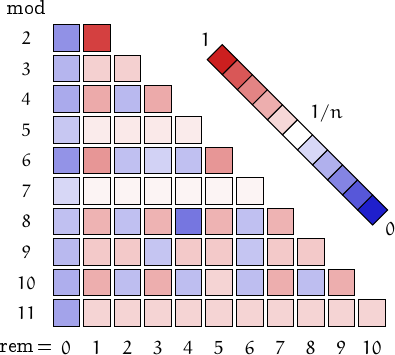The first 600 equidigital numbers :
1, 2, 3, 5, 7, 10, 11, 13, 14, 15, 16, 17, 19, 21, 23, 25, 27, 29, 31, 32, 35, 37, 41, 43, 47, 49, 53, 59, 61, 64, 67, 71, 73, 79, 81, 83, 89, 97, 101, 103, 105, 106, 107, 109, 111, 112, 113, 115, 118, 119, 121, 122, 123, 127, 129, 131, 133, 134, 135, 137, 139, 141, 142, 145, 146, 147, 149, 151, 155, 157, 158, 159, 160, 161, 162, 163, 166, 167, 169, 173, 175, 177, 178, 179, 181, 183, 185, 189, 191, 192, 193, 194, 197, 199, 201, 203, 205, 211, 213, 215, 217, 219, 223, 224, 227, 229, 233, 235, 237, 239, 241, 245, 249, 250, 251, 257, 259, 263, 265, 267, 269, 271, 277, 281, 283, 287, 289, 291, 293, 295, 301, 305, 307, 311, 313, 317, 320, 329, 331, 335, 337, 347, 349, 353, 355, 359, 361, 365, 367, 371, 373, 375, 379, 383, 384, 389, 395, 397, 401, 405, 409, 413, 415, 419, 421, 427, 431, 433, 439, 443, 445, 448, 449, 457, 461, 463, 467, 469, 479, 485, 486, 487, 491, 497, 499, 503, 509, 511, 521, 523, 529, 541, 547, 553, 557, 563, 567, 569, 571, 577, 581, 587, 593, 599, 601, 607, 613, 617, 619, 623, 631, 640, 641, 643, 647, 653, 659, 661, 673, 677, 679, 683, 686, 691, 701, 709, 719, 727, 733, 739, 743, 751, 757, 761, 768, 769, 773, 787, 797, 809, 811, 821, 823, 827, 829, 839, 841, 853, 857, 859, 863, 875, 877, 881, 883, 887, 896, 907, 911, 919, 929, 937, 941, 947, 953, 961, 967, 971, 977, 983, 991, 997, 1000, 1003, 1005, 1006, 1007, 1009, 1011, 1013, 1015, 1018, 1019, 1021, 1022, 1025, 1027, 1031, 1033, 1037, 1039, 1041, 1042, 1043, 1046, 1047, 1049, 1051, 1053, 1055, 1057, 1058, 1059, 1061, 1063, 1065, 1067, 1069, 1072, 1073, 1075, 1077, 1079, 1081, 1082, 1083, 1085, 1087, 1088, 1091, 1093, 1094, 1095, 1097, 1099, 1101, 1103, 1106, 1107, 1109, 1113, 1114, 1115, 1117, 1119, 1120, 1121, 1123, 1125, 1126, 1127, 1129, 1134, 1135, 1136, 1137, 1138, 1139, 1141, 1142, 1145, 1147, 1149, 1151, 1152, 1153, 1154, 1157, 1159, 1161, 1162, 1163, 1165, 1167, 1168, 1169, 1171, 1174, 1175, 1181, 1183, 1184, 1185, 1186, 1187, 1189, 1191, 1193, 1195, 1198, 1201, 1202, 1203, 1205, 1207, 1211, 1213, 1214, 1216, 1217, 1219, 1223, 1225, 1226, 1227, 1229, 1231, 1234, 1237, 1238, 1239, 1241, 1245, 1246, 1247, 1249, 1253, 1255, 1257, 1259, 1261, 1262, 1263, 1264, 1267, 1269, 1271, 1273, 1277, 1279, 1281, 1282, 1283, 1285, 1286, 1289, 1291, 1293, 1294, 1295, 1296, 1297, 1299, 1301, 1303, 1306, 1307, 1312, 1315, 1317, 1318, 1319, 1321, 1322, 1323, 1325, 1327, 1328, 1329, 1333, 1335, 1337, 1343, 1344, 1345, 1346, 1347, 1349, 1351, 1354, 1355, 1357, 1358, 1361, 1363, 1366, 1367, 1371, 1372, 1373, 1375, 1376, 1377, 1379, 1381, 1382, 1383, 1385, 1387, 1389, 1393, 1399, 1401, 1402, 1403, 1405, 1407, 1408, 1409, 1411, 1415, 1418, 1421, 1423, 1424, 1427, 1429, 1431, 1433, 1435, 1437, 1438, 1439, 1445, 1447, 1451, 1453, 1454, 1455, 1457, 1459, 1461, 1465, 1466, 1471, 1472, 1473, 1475, 1477, 1478, 1481, 1483, 1486, 1487, 1489, 1491, 1493, 1497, 1499, 1501, 1502, 1504, 1505, 1509, 1511, 1513, 1514, 1517, 1519, 1522, 1523, 1525, 1527, 1531, 1533, 1535, 1537, 1538, 1539, 1541, 1543, 1546, 1549, 1552, 1553, 1555, 1559, 1561, 1563, 1565, 1567, 1568, 1569, 1571, 1574, 1577, 1579, 1583, 1585, 1587, 1589, 1591, 1593, 1594, 1597, 1600, 1601, 1603, 1607, 1609, 1613, 1618, 1619, 1621, 1622, 1623, 1625, 1627, 1631, 1633, 1637, 1641, 1642, 1643, 1645, 1646, 1647, 1649, 1654, 1655.
Distribution of the remainders when the numbers in this family are divided by n=2, 3,..., 11. (I took into account 4624231 values, from 1 to 19999999).
| n\r | 0 | 1 | |||||||||
|---|---|---|---|---|---|---|---|---|---|---|---|
| 2 | 727171 | 3897060 | 2 | ||||||||
| 3 | 648693 | 1987777 | 1987761 | 3 | |||||||
| 4 | 240890 | 1948415 | 486281 | 1948645 | 4 | ||||||
| 5 | 558894 | 1016239 | 1016456 | 1016440 | 1016202 | 5 | |||||
| 6 | 55120 | 1651556 | 335830 | 593573 | 336221 | 1651931 | 6 | ||||
| 7 | 536873 | 681059 | 681231 | 681451 | 681244 | 681184 | 681189 | 7 | |||
| 8 | 234801 | 974134 | 243085 | 974237 | 6089 | 974281 | 243196 | 974408 | 8 | ||
| 9 | 147508 | 662757 | 662671 | 250464 | 662503 | 662426 | 250721 | 662517 | 662664 | 9 | |
| 10 | 47042 | 846280 | 170083 | 846416 | 170063 | 511852 | 169959 | 846373 | 170024 | 846139 | 10 |
| 11 | 25007 | 459785 | 460002 | 459999 | 459789 | 459793 | 460079 | 460059 | 460179 | 459681 | 459858 |
A pictorial representation of the table above

Imagine to divide the members of this family by a number n and compute the remainders. Should they be uniformly distributed, each remainder from 0 to n-1 would be obtained in about (1/n)-th of the cases. This outcome is represented by a white square. Reddish (resp. bluish) squares represent remainders which appear more (resp. less) frequently than 1/n.
e-mail: info -at- numbersaplenty.com • Privacy notice • engine limits